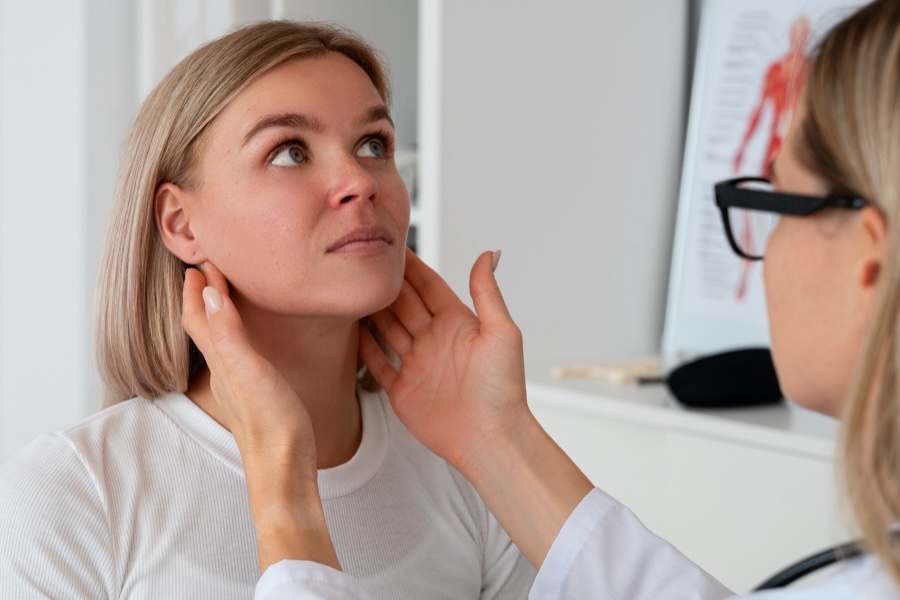Wisdom teeth removal is a common dental procedure that involves taking out the wisdom teeth or the third molars. The wisdom teeth tend to have problems with emerging properly into the mouth because there usually is not enough space for them. So, they tend to erupt at an angle or remain embedded in the jawbone. If yours are impacted, learn more about causes, symptoms, and treatment options.
This is why they are often extracted or removed.
With the right dental team, wisdom teeth removal should be a relatively painless procedure. But, recovering from the surgery is a whole different story.
Taking notes of your dentist’s post-surgery instructions is crucial to ensure optimal healing and to prevent complications like dry socket – this includes knowing what to eat and what not to eat. Keep reading to learn more about proper diet after wisdom teeth removal and other aftercare tips to help you recover well.
About Wisdom Teeth Removal
Wisdom teeth removal is recommended for wisdom teeth that have not fully come out or are impacted. This means that some or all parts of the tooth are trapped in the bone or gums. If left untreated, this impacted wisdom tooth may cause dental problems such as severe pain, gum disease, tooth decay, and even infection and cysts. If you’re worried about infection, review the signs you need treatment.
The procedure is done under local anaesthesia or sedation and can take up to an hour to finish depending on the difficulty. After having it removed, your dentist will discuss important tips for your recovery. This includes resting, taking your medications, and knowing what to and not to eat, among many others. If you need an evaluation, our oral surgery team in Calgary can help.
Wisdom Teeth Removal Recovery Process
Recovery after getting your wisdom tooth removed is different for everyone. Usually, it should take up to three days to get back to your usual routine, but this will still come with restrictions. There are also some common post-surgery symptoms that you may experience. These are normal and should subside as the days go by. Such include:
- Minimal bleeding
- Pain and discomfort
- Difficulty eating
- Cheek swelling

What to Eat After Wisdom Tooth Removal
While the recovery process varies for every patient, here is what the recovery timeline should generally be like after getting a wisdom tooth extracted and your dietary recommendations to relieve the symptoms following your surgery:
Immediately After…
Bite on a gauze pad and keep pressure on the wound to control any bleeding. Clear liquids, smoothies, and soups and broths are your go-to food choices. Do not use a straw as this will risk dislodging the clot forming over your extraction site.
First Few Hours…
Some swelling and pain can be expected within the first few hours. You can apply an ice pack over the swelling cheek for relief. As for food, stick to a soft but nutritious diet with mashed fruits, soft cheeses, yogurts, and scrambled eggs to boost your immune system as you recover.
First 24 – 48 Hours…
Make sure to take your medications as often as recommended. Also, rinse the mouth with warm salt water or any prescribed rinse to swish debris and bacteria. It is also important that you partake in a soft and nutrient-filled diet to prevent trauma to the surgical area and to help your body recover quickly. Add pureed or mashed vegetables to your meals for a balanced diet.
After 1 week…
Your dentist may ask that you return to the dental office to remove any remaining stitches and to check on your healing. At this time, you can slowly go back to your usual diet but make sure to take it easy to avoid post-surgical complications.
Post-surgery Diet
If you are still unsure of what your grocery list should include after your wisdom tooth surgery, here’s a short list of what you should have in your pantry to get you going with proper healing and recovery:
- Clear Liquids
- Cold and Soft Foods
- Milkshakes and smoothies
- Ice cream
- Oatmeal
- Pudding
- Smooth Foods
- Mashed fruits and vegetables (banana, beans, potatoes, carrots, broccoli)
- Applesauce
- Hummus
- Protein Sources
- Scrambled eggs
- Yogurt
- Boneless fish fillets
- Cheese
- Tofu
- Nutrient-rich Foods
- Semi-solid Foods
- Pasta
- Soft-cooked vegetables

Foods to Avoid During Recovery
Your diet is crucial to your recovery. Aside from keeping a list of what to eat, knowing what NOT to eat is also as important. The wrong food can impede your healing process by risking possible complications such as a dry socket, bleeding, swelling, and surgical trauma.
Hard and Crunchy Foods
Foods such as popcorn, crackers, candies, chips, and nuts are hard to chew and can press against your wound to cause pain and bleeding.
Sticky and Chewy Foods
As the surgical site heals, a blood clot will form over the wound. This is packed with nutrients that will help close your gums, so do your best to keep it intact. Chewy foods such as taffy and jerky may cause clot removal and can slow down your healing.
Hot and Spicy Foods
While soups and broths are helpful during recovery, make sure these aren’t too hot when you eat them. Hot foods can increase blood flow and irritate your gums, eventually causing bleeding, pain, and swelling.
Acidic Foods
Lemon, other citrus juices, and vinegar should be avoided as they may cause a burning and irritating sensation on the extraction site and other mouth surfaces.
Other Aftercare Tips
Aside from your diet, other homecare tips that can help with speedy healing are:
- Rest and allow your body to recover naturally.
- Take your prescribed medications.
- Avoid alcohol and tobacco.
- Restrict your activities.
- Practice good oral hygiene.
If there is bleeding that you cannot control with pressure using a gauze or severe pain and swelling, contact your dentist immediately so they can assess the problem and provide you with urgent treatment.
Key Takeaways – Wisdom Teeth Removal Recovery
When it comes to healing after wisdom tooth removal, being prepared is key. With our list above, you can stock up on a few days’ supply of foods and beverages that should help with the recovery process. You should also focus on getting enough protein as this can help with faster wound healing.
If you are having a hard time with your diet, you can contact us at Sierra Dental. We can guide you on how to meet nutritional recommendations even with your dietary restrictions following wisdom tooth surgery.